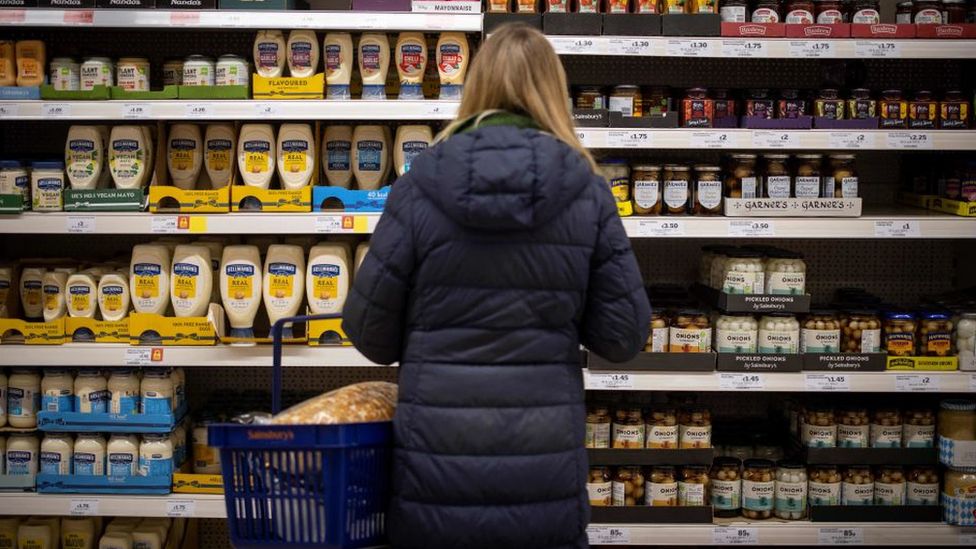ARTICLE AD BOX
 Image source, Getty Images
Image source, Getty Images
The average annual grocery bill across Great Britain is set to rise by £643 this year, according to research firm Kantar.
That means shoppers could be paying on average an extra £54 a month for food and other groceries.
Back in June, the firm predicted the cost of the average annual supermarket shop would go up by £380 in 2022.
Food prices have soared this year, with the war in Ukraine helping to drive up prices at supermarket tills.
The survey also showed the price of a weekly shop rose 13.9% in September, compared with the year before. That marks another record high since Kantar first started tracking the sector in 2008.
"The cost-of-living crisis is still hitting people hard at the checkouts and this latest data will make tough reading for many," said Fraser McKevitt, head of retail and consumer insight at Kantar.
"Based on our numbers, the average household is facing a £643 jump in their annual grocery bill to £5,265 if they continue to buy the same items. Taking that at a basket level, that's an extra £3.04 on top of the cost of the average shopping trip last year which was £21.89."
Inflation - the rate at which prices are rising - is currently near a 40-year high, at 9.9%.
Increasing costs are eating into household budgets, with new figures on Tuesday showing rises in regular wages are failing to keep up with the rising cost of living.
Food prices went up around the world following Russia's invasion of Ukraine, which has been one of the factors pushing up prices at supermarket tills.
The war has disrupted supplies from the two countries, which are major exporters of goods such as sunflower oil, wheat and fertiliser.
Kantar said grocery inflation now stands at 12.3% for the 12-week period ending 2 October. Items such as milk, margarine and dog food are seeing the fastest price rises.
Cost-of-living pressures
The firm said people are looking for ways to manage their budgets to avoid paying more for their shopping, amid soaring living costs.
Sales of supermarket own-label products continue to grow as customers switch from branded products.
However, there isn't strong evidence of diets changing, Mr McKevitt said.
"We're generally reluctant to change what we eat, so this is more about sticking to the food we know and love while hunting for cheaper alternatives," he said.
"For example, while frozen veg sales have gone up slightly, there hasn't been a big switch away from fresh products, which are still worth 10 times more."
The one standout exception to this was a surge in marmalade sales, which were up by 18% in September as the country commemorated the death of Queen Elizabeth II.
Shoppers are also hunting out products to help manage their energy bills, the data suggests.
Energy bills rose for millions of households on 1 October, although the increase was cushioned by a government cap on the cost per unit as well as cost-of-living payments.
A typical household annual bill rose from £1,971 to £2,500 - which is twice as high as last winter.
Sales of cooking appliances including slow cookers, air fryers and sandwich makers, which tend to use less energy, rose by 53%, suggesting people are searching out cheaper ways to cook as they try to avoid using their ovens.
Meanwhile, sales of duvets and electric blankets grew by 8%, while candles are up by 9%, suggesting that people may be preparing for possible winter blackouts.
The report by Kantar also showed that the discounters are once again the fastest growing grocers.
Lidl's sales were up 21% over the last 12 weeks, closely followed by Aldi.
Asda was the best performing of the traditional big supermarkets, with its new Just Essentials basic range helping to boost sales.

 2 years ago
25
2 years ago
25








 English (US)
English (US)